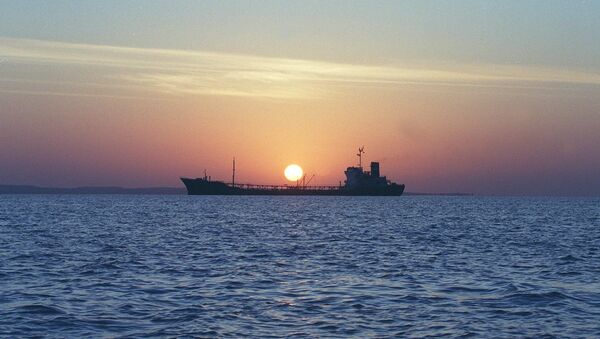Under the US proposal, a coalition of nations would patrol the Persian Gulf and the Strait of Hormuz, near Iran, as well as the narrow Bab al-Mandab strait that separates Yemen from Africa.
"We're engaging now with a number of countries to see if we can put together a coalition that would ensure freedom of navigation both in the Straits of Hormuz and the Bab al-Mandab," Marine General Joseph Dunford, chairman of the Joint Chiefs of Staff, said Tuesday, Sputnik reported.
"And so I think probably over the next couple of weeks we'll identify which nations have the political will to support that initiative, and then we'll work directly with the militaries to identify the specific capabilities that'll support that," Dunford added. However, according to Shadjareh, other nations have not yet stepped up to make that commitment to the US.
“It’s extremely puzzling. There is no one politically willing to make a commitment,” Shadjareh told Loud & Clear hosts John Kiriakou and Brian Becker. Shadjareh said they “don’t see the urgency that the Trump administration is articulating, and even when you look at what [US President Donald] Trump is suggesting, it’s not something immediate. It’s something to be done in weeks. So, [that itself] says very clearly that there is no emergency here. There’s no one willing to be part of it.”
“And it seems [the] US itself is not willing to be sort of committing itself. All they are saying is they will be coordinating it [and that] other nations should be part of this and they should escort their own sort of flagships,” Shadjareh said, noting that the plan seems to propose that Gulf Arab nations, rather than European nations, join the coalition.
“It seems absolutely very odd that this is not a call to European nations to come forward. It seems to be a call to the Gulf Arab leaders to come forward and be coordinated by the US … We should also take into account what is happening within … the [United Arab] Emirates (UAE). [The UAE] has been pulling out of the coalition against Yemen,” Shadjareh noted, wondering whether the proposed coalition might be intended to cover gaps left by the Emirati drawdown.
“Here, the US is saying it’s [going to] use its might, and it's going to invite others to join it to economically damage Iran in the name of actually opening the economical avenues for everybody else,” he explained.
On Monday, a senior Emirati official revealed that the UAE has reduced its forces in Yemen, where it has provided support to the Saudi-led, US-backed coalition warring against the Houthi political opposition faction since 2015.
On Monday, Trump also tweeted that sanctions against Iran will be increased “substantially,” accusing the country of violating the 2015 Joint Comprehensive Plan of Action’s (JCPOA) provisions long before it announced a gradual backtracking on its commitments under the international nuclear accord in recent weeks.
“I think, internationally, everybody is in consensus that the sanctions are not working. The thing of trying to bring Iran to its knees has not worked as well, and that policy has backfired; the policy of bullying has also backfired and unfortunately … these actions are telling us that [the US hasn’t] gotten any other plan,” Shadjareh said, also calling the US threat to increase sanctions “pathetic.”
“I don’t know what else is going to be sanctioned that hasn't been sanctioned. The reality is that although life has become very difficult for ordinary people in Iran, it hasn’t really had the desired effect that the US was expecting,” he said.
According to Shadjareh, countries like China, Russia and India are continuing to trade with Iran, while European countries have been “sort of stuck in the middle” amid increased tensions between Tehran and Washington.
“On one side,” he said of European countries, “they want to do trade with Iran. On the other side, they are worried about secondary sanctions and their companies, worried that they are going to ... be punished by [the US].”
The sharp escalation of tensions between Iran and the United States began in May 2018, when Trump announced Washington's unilateral withdrawal from the JCPOA. Last month, on the one-year anniversary of Trump's announcement, Iranian leaders said the country would suspend some of its voluntary commitments under the nuclear deal, citing the other signatories' apparent inability to withstand US pressure and prevent damage to Iran’s economy, Sputnik reported. This week, the EU launched the Instrument in Support of Trade Exchanges (INSTEX) mechanism, which is a payment system designed to allow European firms to deal with Iran despite US sanctions.




